Get A Nationally Ranked Top 100 Lawyer. Nearly $100 Million Recovered For Our Clients in San Diego, California
San Diego Uber Accident Lawyer
Did you place your trust in an Uber driver only to suffer serious injuries from a San Diego Uber accident? Our lawyers can help.
Your San Diego car accident lawyers can help you recover full compensation for your injuries if you have been injured by an Uber driver.
Uber Accidents Are Becoming A Serious Problem In San Diego County
Uber is a rideshare company based in San Francisco, California. Founded in 2009 by Garrett Camp and Travis Kalanick, the company has seen explosive growth over the past decade. Uber is the leading rideshare company, commanding an estimated 87 percent of the market share in the United States. According to the most recent data, Uber has more than 111 million monthly active users, and completes more than 17 million trips per day. In 2019, Uber brought in over $14.1 billion in revenue, generating a net loss of just over $1 billion.
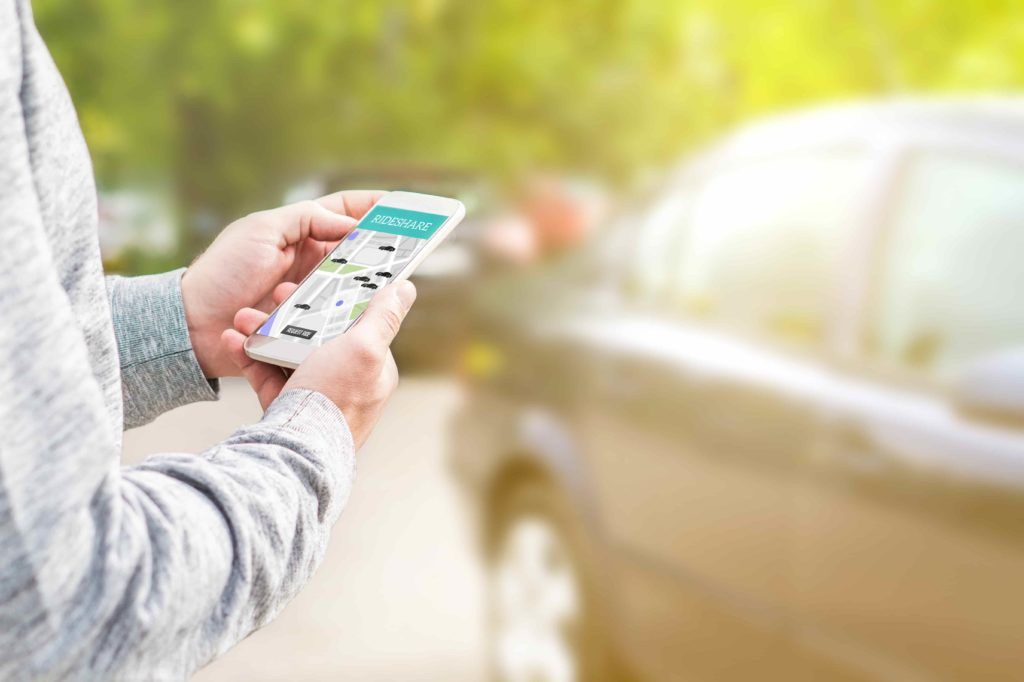
We Handle Uber Car Accident Cases and We Win.
As the popularity of Uber increases, so too does the number of California Uber accidents. While many of these rideshare car accidents involve Uber passengers, a significant number of other motorists are injured in Uber accidents, as well.
At the Levinson Law Group, we help California rideshare accident victims pursue claims for financial compensation after being involved in an Uber accident. With over 40 years of combined experience, our dedicated team of injury advocates has the experience, skill and dedication necessary to successfully represent the interests of accident victims at every stage of the recovery process.
Uber Accident Statistics:
- Uber has approximately four million drivers and 75 million riders.
- Uber is available in 65 countries and over 700 cities across the world.
- In 2019, Uber averaged 103 million monthly active users. This number more than doubled from 2016, when the company had just 45 million monthly active users.
- 17 million Uber trips are completed each day.
- 155 million people downloaded the Uber app in 2018.
- Uber has completed more than 10 billion rides
- Over 45 percent of people say that they are “likely” to use a rideshare app for their transportation needs
- Uber’s market share of the drivers in the United States rideshare market is about 87 percent.
- Over 22 percent of all Android phones have the Uber app installed on them.
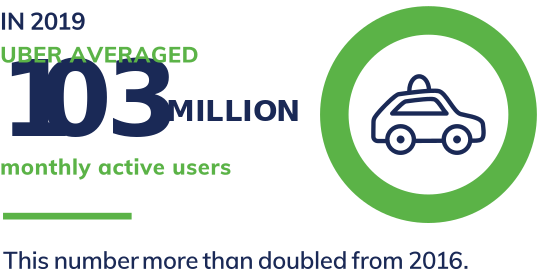

California Car Accident Statistics:
- The Office of Traffic Safety maintains records of all California car accidents. According to the most recent data:
- There were 3,563 fatal car accidents in California, representing an 8.3 percent decrease from 2017, when there were 3,884 fatal accidents.
- 277,160 people were injured in California car accidents
Uber Eats Accident Statistics:
- 15 million people use Uber Eats
- Uber Eats commands about a 29 percent market share of the United States meal delivery market
- According to a 2018 study conducted by the University of Chicago and Rice University, rideshare companies are responsible for a 2-3 percent increase in the total number of fatal traffic accidents
- This amounts to as many as 1,100 fatalities per year.
- The study also found that Uber drivers spend 40 to 60 percent of their time “deadheading,” which is driving around without a passenger waiting for a fare.
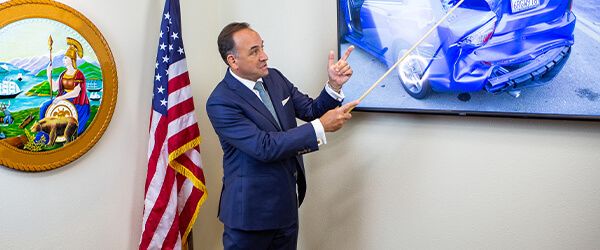
Common Causes of Uber Accidents in San Diego
One of the reasons Uber has become so popular in recent years is that it offers a valuable service to its customers. In cities where Uber operates, customers may avoid the need to buy a car or rely on public transportation. And, depending on the circumstances, an Uber ride is often cheaper than a traditional taxicab. However, using Uber also comes with its share of risks.
Under California law, anyone injured in a car accident has the right to bring a lawsuit against the party or parties they believe caused the accident. To succeed, an accident victim’s uber accident attorney must prove:
- The accident victim was injured
- The other driver was negligent
- The negligence caused the victim’s injuries
- Use an eligible vehicle
- Complete an online screening of the applicant’s driving history and criminal record
Other Common Causes of Uber Accidents and Rideshare Accidents
Given the lax requirements to drive for Uber, it is no surprise that many San Diego Uber accidents result from driver inexperience. Other common causes of rideshare accidents include:
Traffic Violations
Ube drivers, like all other motorists, have a duty to obey all posted road signs and traffic laws. However, Uber drivers frequently drive in areas of the city they are not familiar with, increasing the chances that they can miss a traffic sign or commit some other type of traffic violation.
Speeding
Speeding is one of the leading causes of fatal traffic accidents in the United States. Because Uber drivers are paid by the trip, some Uber drivers try to maximize their earnings by quickly dropping passengers off at their destination. However, in doing so, drivers are placing their passengers as well as other motorists at risk.
Drowsy Driving
Uber drivers often drive for long periods, pushing themselves past their physical limits, in an effort to make more money. However, statistics have repeatedly shown that distracted driving can be just as dangerous as drunk driving due to the impairments drivers suffer when tired. While Uber limits drivers to shifts of no more than 12 hours per day, this assumes a driver was well-rested, to begin with.
Distracted Driving
Almost all Uber drivers rely on the in-app GPS when taking passengers to their destinations. While Uber requires its drivers to use hands-free devices, not all drivers follow this guidance. Even those who use hands-free devices can still be distracted by the device.
Regardless of how an Uber accident occurs, the chances are that the passenger had nothing to do with causing the accident. Uber accident victims may be entitled to monetary compensation for the injuries they sustained in the accident. At the Levinson Law Group, our car accident attorneys can help you get compensation after being in an Uber accident or Lyft car accident.
How Uber Insurance Works
California is not a “no-fault” state when it comes to car insurance. Traditionally, motorists injured in a car accident would file a claim against the at-fault driver’s insurance policy to recover for their injuries. However, due to the complex relationship between a rideshare company and its passengers, the introduction of the rideshare concept required insurance companies and state lawmakers to rethink how car insurance operates.
THE FOUR STAGES OF UBER INSURANCE
California law requires that rideshare companies such as Uber purchase car insurance on behalf of their drivers. The amount of insurance coverage required varies, depending on the stage, or period, of the rideshare experience. The rideshare experience is broken down into the following periods:
Period Zero – The Uber app is not open, or the driver is not currently accepting rides
When a driver’s Uber app is not open, or they are not accepting rides, the company’s insurance policy is not involved. In these situations, the driver’s own insurance policy is the first place to look for coverage. If the at-fault driver’s coverage does not apply, they do not have insurance, or they have insufficient insurance to cover an accident victim’s injuries, the victim may file an uninsured/underinsured motorist claim with their own insurance policy, assuming they have such coverage.
Period One – The Uber app is open, and the driver is awaiting a ride request
When an Uber driver is waiting for a ride request, the following insurance limits apply:
- $50,000 per person/ $100,000 per accident in bodily injury liability coverage
- $30,000 of property damage liability coverage per accident
Period Two – The driver is matched up with a rider
Once the Uber app matches a driver with a passenger, Period Two begins. During this Period, California requires Uber to maintain the following insurance:
- $1 million in bodily injury coverage
- $1 million in third-party liability coverage
- $1 million in uninsured or underinsured motorist protection
Period Three – The driver picks up the passenger
When the Uber diver picks up a passenger, this marks the beginning of Period Three. The coverage during Period Three is identical to that available during Period Two:
- $1 million in bodily injury coverage
- $1 million in third-party liability coverage
- $1 million in uninsured or underinsured motorist protection
This coverage remains in place until the driver drops off the passenger. Depending on the specific facts surrounding a rideshare accident, complex insurance issues can arise. These accidents often involve multiple insurance policies, including the driver’s policy, Uber’s insurance policy, and the accident victim’s car insurance policy. Dealing with multiple insurance companies in the aftermath of a South California Uber accident can be overwhelming, and accident victims who are looking for assistance should reach out to a dedicated South California car accident attorney for assistance.
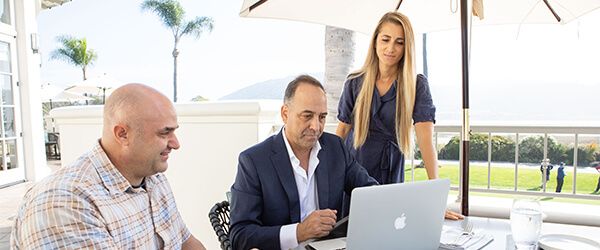
Damages in a San Diego Uber Accident
California personal injury law allows accident victims to hold others who negligently caused an accident responsible for their injuries. In general, state law provides for two types of damages: compensatory and punitive. Compensatory damages are intended to “make the victim whole” again,” and look to put the accident victim back into the position they were in before the accident. On the other hand, punitive damages are focused on punishing the defendant for their especially egregious behavior.
Compensatory Damages
Compensatory damages are further broken down into economic and non-economic damages. Economic damages are those that can fairly easily be assigned a monetary value, including:
- Past medical bills, including medical bills and hospital expenses;
- Future medical expenses Lost wages;
- Decrease in future earning capacity;
- Property damage; and
- Any other out-of-pocket expenses, such as for transportation to and from doctor’s appointments.
Non-Economic Damages
Non-economic damages are more subjective in nature and harder to assign value. However, these damages are equally – if not even more important – in many California car accident cases. Proving non-economic damages requires an attorney explain to the jury the impact that the accident had on the victim’s life; whether it is illustrating the toll that the pain and stress of the accident took on the victim, the relationships they lost as a result of the accident, or the activities they can no longer enjoy because of their injuries. Non-economic damages include:
- Pain and suffering;
- Emotional distress;
- Loss of enjoyment of life;
- Disability;
- Disfigurement; and
- Loss of consortium.
California’s Negligence Statute Law
When talking about the availability of damages in a California Uber accident, it is important to also discuss the state’s comparative negligence statute. While some accidents are solely the fault of one party, it is common for multiple parties to share the responsibility for causing an accident. Clearly, in Uber accidents involving a rideshare passenger, it is unlikely that that passenger had anything to do with the accident. However, this comes up fairly often in California Uber accidents involving other drivers.
Under California’s comparative negligence statute, an accident victim will not be prevented from recovering from other at-fault parties, regardless of their percentage of fault. This means that an accident victim who is 60 percent responsible for causing a collision can still recover from another motorist who was 40 percent at fault. However, the catch is that the accident victim’s total recovery amount will be reduced by their percentage of fault.
For example, assume a motorist is injured in an accident with an Uber driver. The accident victim’s damages are $300,000, and the jury determines that the accident victim was 30 percent responsible for the crash, and the Uber driver 70 percent responsible. In this scenario, the accident victim would recover a total of $210,000 (the total amount of damages, reduced by 30 percent).
While California’s pure comparative negligence laws are favorable to accident victims in that they will not preclude recovery, it is still critical to the overall success of a claim to reduce an accident victim’s role in causing an accident, whenever possible. By working with an experienced attorney familiar with California car accident cases, accident victims can rest assured that their case is in good hands
What to do after a San Diego Uber Accident
Call the Police
- Even in those car accidents that initially seemed minor, it is crucial that anyone involved in an Uber accident call the police to report the crash. When police respond to a car accident call, they will complete an accident report, which can later be used as evidence. If an accident victim does not report the collision, an insurance company may argue that the accident did not happen or that it was not as serious as the accident victim claims it to be.
Get Medical Care
- After a California rideshare accident, an accident victim's health should be their main concern. Thus, even if there are no signs of serious injury after a crash, it is still important to obtain medical treatment. Accident victims should also take up any offer for ambulance transport. A failure to obtain prompt medical treatment may be used by an insurance company to argue that a victim's injuries were either not as serious as they say they are, or that they were caused by something else.
Document Everything
- When possible, an accident victim should gather as much documentation and evidence from the scene of the accident. This includes taking pictures of all vehicles involved in the crash and getting the names and contact information of other drivers, passengers and witnesses. Accident victims assume that police officers will take care of this as a part of their investigation. However, that is not always the case.
Contact an Attorney
- Pursuing a claim for financial compensation after a Southern California Uber accident can be a complicated process. There are often multiple insurance policies in play and determining how to successfully navigate the system can be overwhelming for many accident victims. By working with an experienced attorney, accident victims can rest assured that everything is being taken care of so they can focus on their recovery.
If you or a loved one has recently been injured in a Carlsbad Uber accident, the dedicated car accident lawyers at Levinson Law Group can help. We have over 40 years of experience representing California car accident victims and their families. We have recovered over $50 million on behalf of more than 3,500 clients.
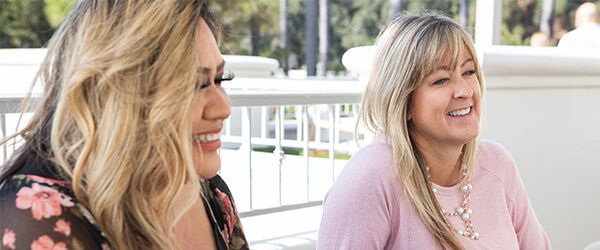
Discuss Your Injuries With an Experienced Rideshare Accident Lawyer
If you or someone you love has recently suffered serious injuries in a Southern California or San Diego Uber accident, reach out to the dedicated personal injury lawyers at the Levinson Law Group for immediate assistance. You may be entitled to significant monetary compensation for the injuries you sustained. Our skilled Carlsbad injury lawyers focus their practice solely on auto accidents, giving us an edge over other firms that represent clients in all types of injury claims. We command an unrivaled understanding of the relevant laws, policies and insurance requirements implicated in rideshare accidents, and put this knowledge to use in each of our clients’ cases. Our auto accident attorneys have over 40 years of collective experience helping accident victims recover full and fair compensation for their injuries and look forward to speaking with you.
When you decide to work with the Levinson Law Group, you can rest assured that you will have someone in your corner throughout the entire process. We begin by explaining the recovery process in understandable terms and make ourselves available to answer your questions whenever they come up. To learn more, and to schedule a free consultation with one of our knowledgeable attorneys, call 760-840-2304. You can also reach us through our online form. And because we work on a contingency-fee model, there is no risk in calling because we will not bill you for any of our services unless we can recover compensation on your behalf.
















